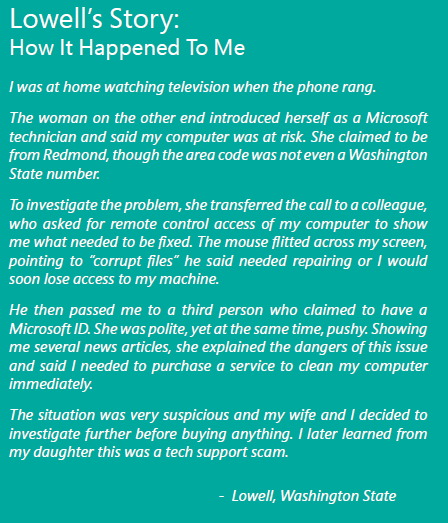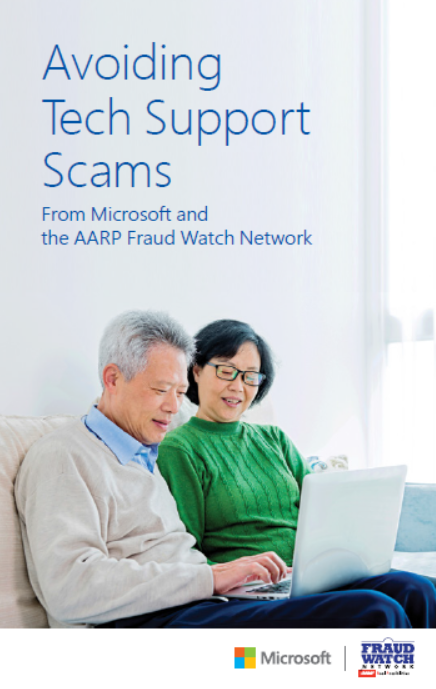Have you or a family member ever answered a questionable phone call asking for money to solve a potential computer problem? Odds are someone you know has. Scammers convince victims to spend hundreds of dollars on phony tech support services by trading on the good names of companies like Microsoft, Google, Facebook, and others.
Since May 2014, Microsoft has received over 175,000 customer complaints regarding fraudulent tech support scams. This year alone, an estimated 3.3 million people in the United States will pay more than $1.5 billion to scammers.
 Today, Microsoft is hosting more than 300 members of the AARP at its Redmond campus for a revealing discussion on how con artists work.
Today, Microsoft is hosting more than 300 members of the AARP at its Redmond campus for a revealing discussion on how con artists work.
Led by Frank Abagnale, AARP’s Fraud Watch Network Ambassador and identity theft expert famously portrayed by Leonardo DiCaprio in “Catch Me If You Can,” the presentations will arm attendees with the knowledge and information to spot a scam in its tracks.
Microsoft took its first major strike against online fraudsters last year with a civil lawsuit in federal court. Now, we’re partnering with law enforcement officials and doing even more with AARP’s Fraud Watch Network, including inviting local AARP members to monthly tours of Microsoft’s Cybercrime Center, bringing expertise to AARP’s Cyber Safety events and publishing a joint booklet that alerts seniors to tech scams and helps victims take action.
Microsoft is also offering a workshop on how you can identify, prevent, and protect yourself from online scams at the Microsoft Store in Bellevue on Oct. 14. You can learn more about the store event and register now online on the Microsoft Events page. For more information and to sign up for a Microsoft Cybercrime Center tour, visit the AARP Seattle webpage.
Stay safe
Neither Microsoft nor our partners make unsolicited phone calls to charge people for computer security or software fixes. If someone claiming to be from Microsoft tech support calls you:
- Do not purchase any software or services.
- Ask if there is a fee or subscription associated with the “service.” If there is, hang up.
- Do not give control of your computer to a third party unless you can confirm that it is a legitimate representative of a computer support team with whom you are already a customer.
- Take the caller’s information down and immediately report it to your local authorities.
- Do not provide your credit card or financial information to someone claiming to be from Microsoft tech support.
Nothing is more important than the trust our customers place in our products and services. We will continue to partner closely with consumer advocates and law enforcement to fight cybercrime, and help create a safer digital experience for every person and organization on the planet.


